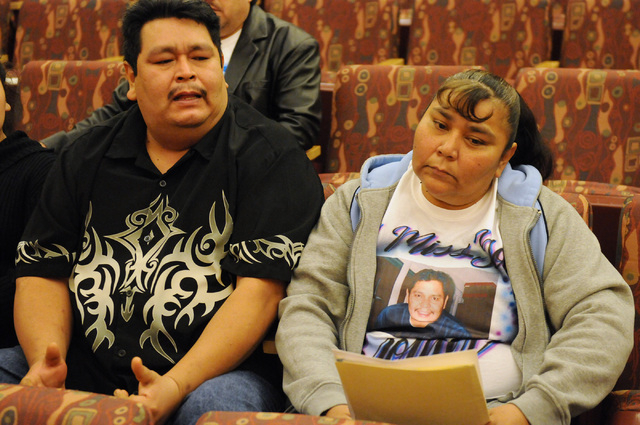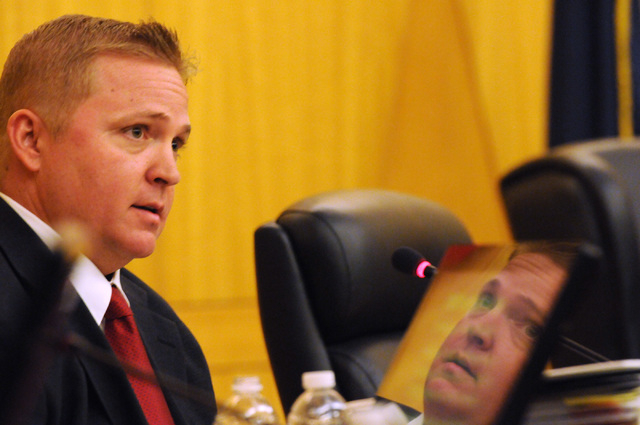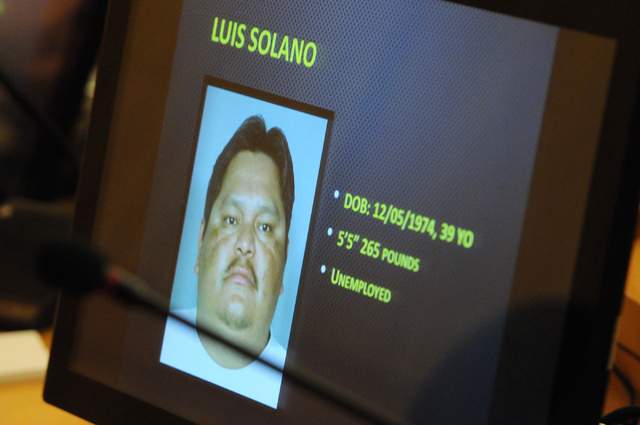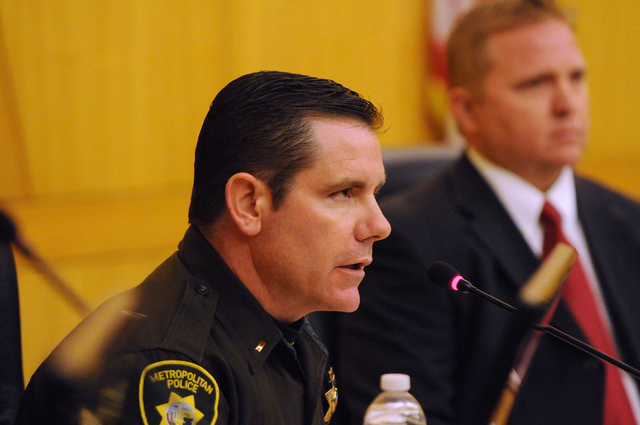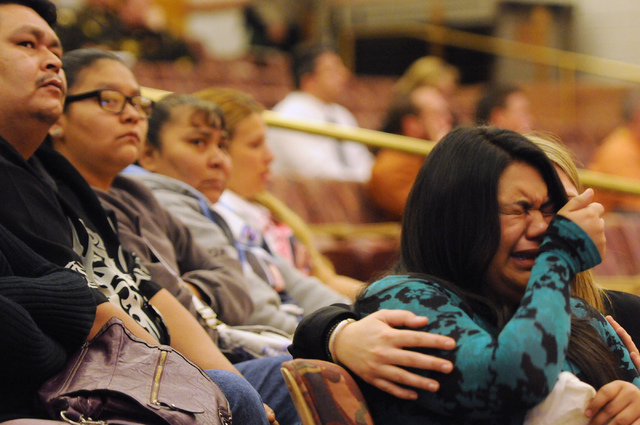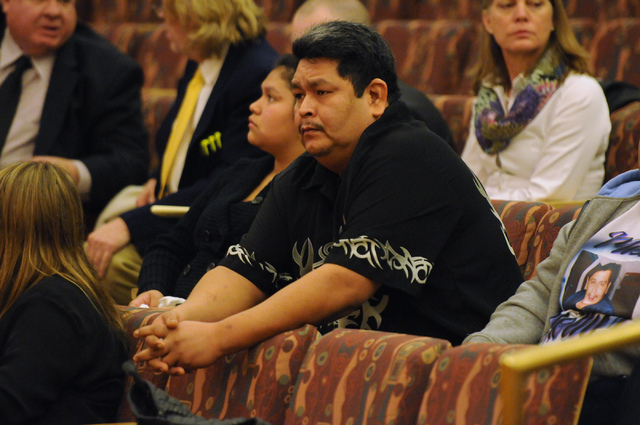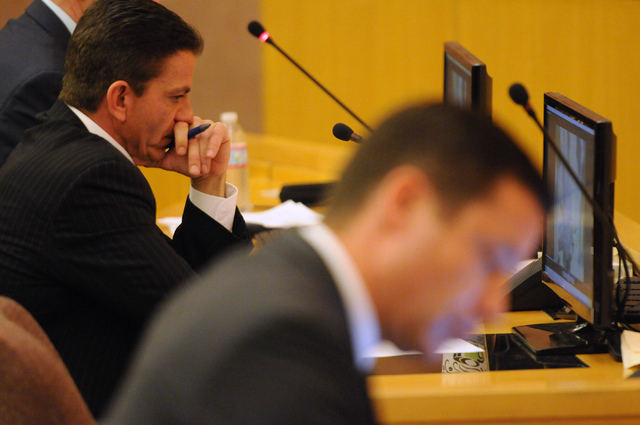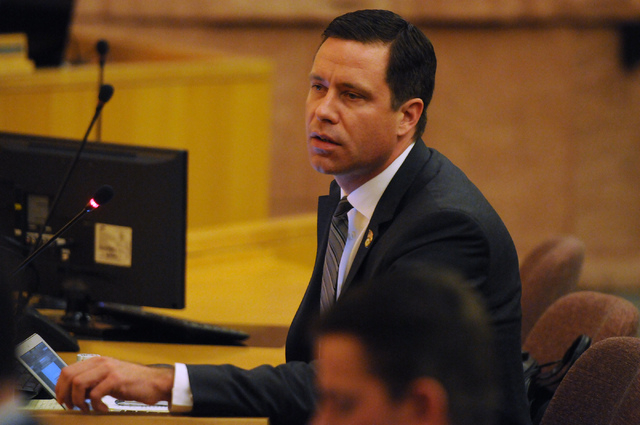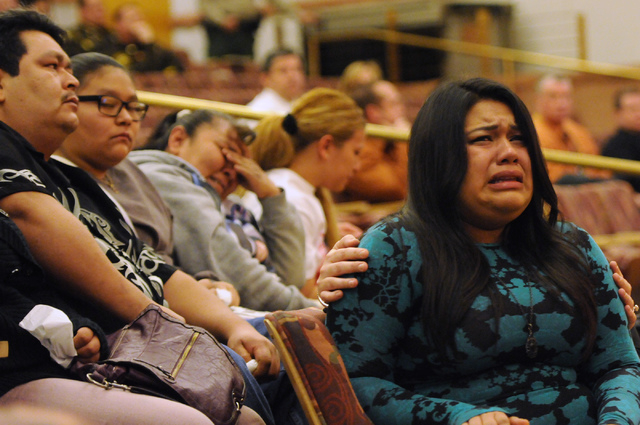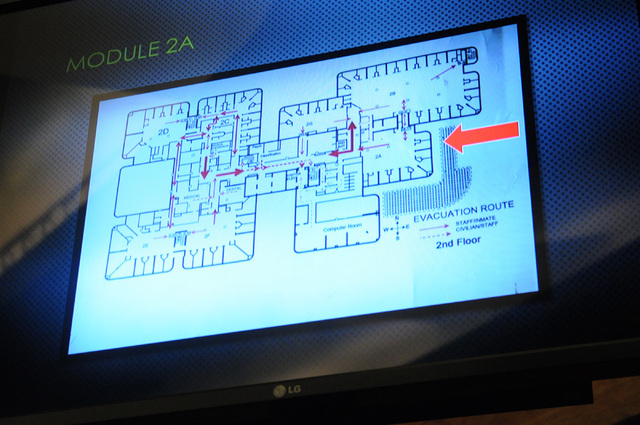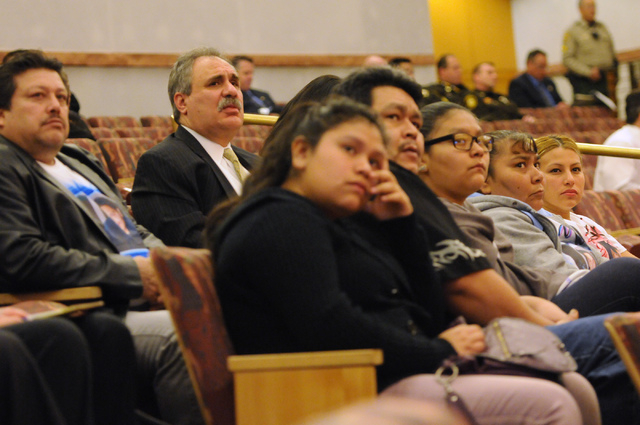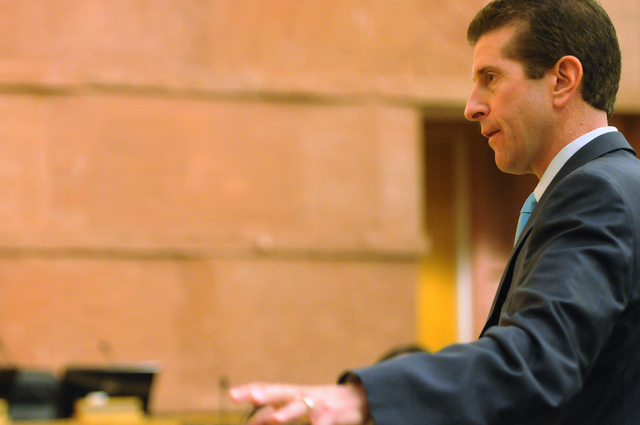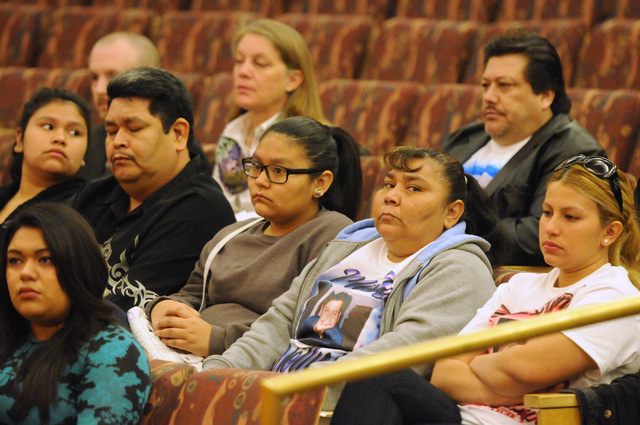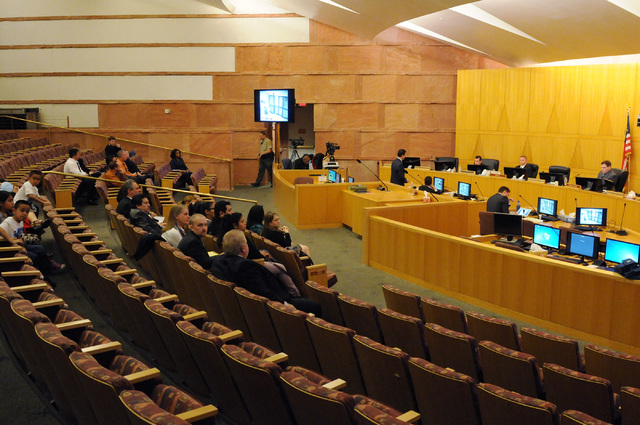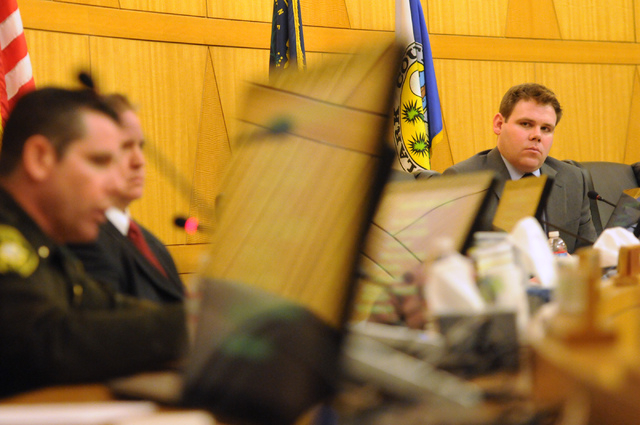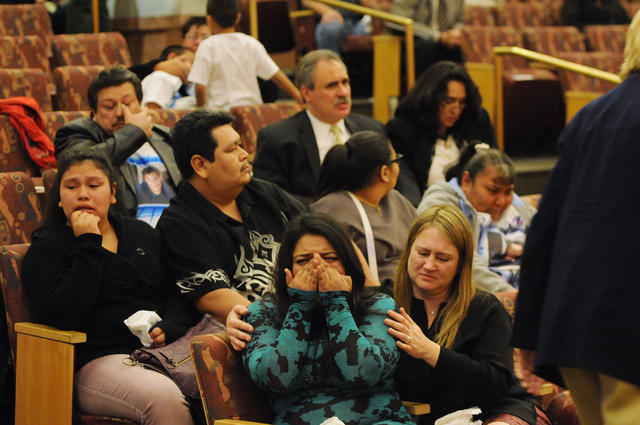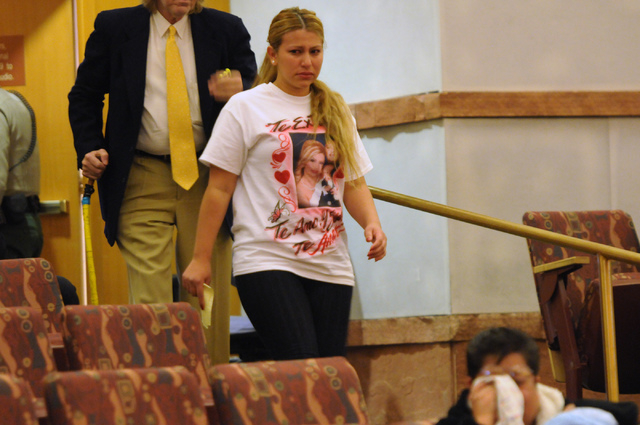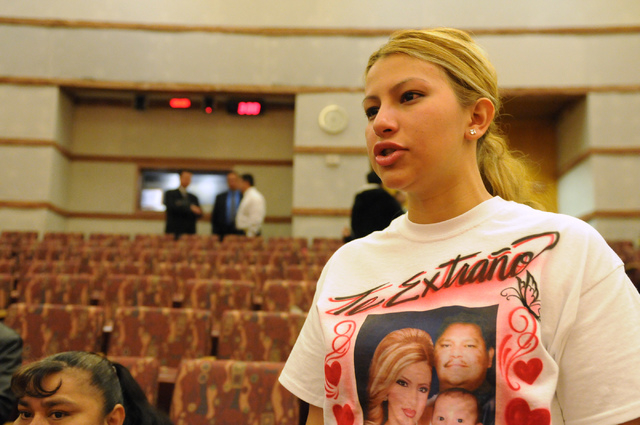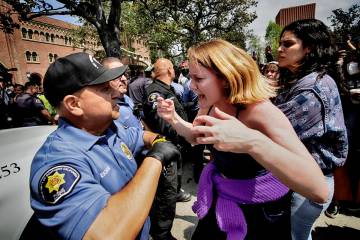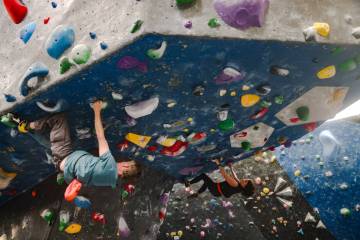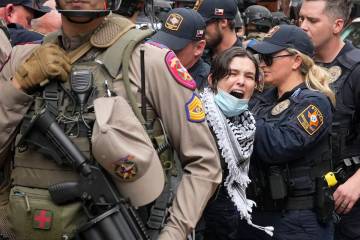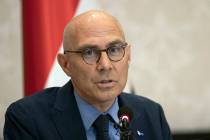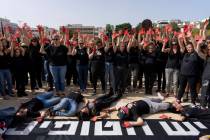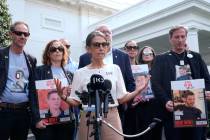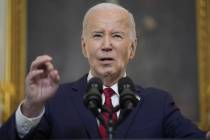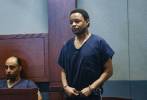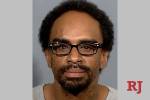Family watches through tears video of inmate’s fatal confrontation with police
Carmen Solano watched on video as her father struggled for life on the floor of the Clark County jail. She knew how this movie would end, but was helpless to stop it.
She and other family members attended a fact-finding hearing Thursday in the case of Luis Solano’s jailhouse death. They cried out as prosecutors played the video of father’s last moments.
“No!” Carmen moaned.
“He’s not fighting. He’s not resisting,” another relative shouted.
Lawyers from the District Attorney’s office paused the presentation. Local defense attorney Craig Drummond, acting as hearing officer for this case, issued a warning that probably came a few minutes too late.
The video is traumatic, Drummond said, and children attending probably shouldn’t watch.
Solano’s angry relative glared as he took two crying children from the room.
While the hearing was grim and emotional it revealed few new details about the case, aside from the first public airing of graphic video of the incident.
Solano, 38, died at University Medical Center on March 6, more than a week after a three-minute struggle with four corrections officers in the jail on Feb. 25. The coroner’s office ruled his death a homicide last year from complications of “positional asphyxia” from police restraint procedures.
Positional asphyxia is a rare occurrence where a person falls, or is forced, into a position that restricts breathing and leads to suffocation.
Two videos showed Solano struggling with officers. The first was grainy surveillance footage without audio; the second was filmed by an officer using a hand-held camera, with audio, after Solano was unconscious. Investigators blurred the faces of everyone except Solano.
The first video showed Solano in a common area for inmates, gesturing wildly and pacing the room, part of a medical housing unit.
Solano had been jailed on Feb. 21 on drug trafficking charges after Las Vegas police seized nearly $55,000 in cash, two pounds of cocaine and three ounces of marijuana in his apartment. Police said he was head of the family’s cocaine business.
He was moved to the medical unit for a mental evaluation the same day he fought officers. A psychiatric nurse found Solano was unaware of his surroundings, but cooperative, according to the testimony of Las Vegas police Det. Jason McCarthy, who headed the criminal investigation into the incident.
McCarthy said witnesses heard Solano asking the guards for water just before the fight, but it’s still unclear why he was so upset.
The video showed Solano disappear off-screen, where he reportedly entered a restricted area near the guards’ control room. By the time Solano reappeared on screen, several officers had grabbed him. They dragged him to the back of the room and forced him face-first to the floor.
Solano resisted officers for several minutes and told them several times he couldn’t breathe, McCarthy said.
Mitchell Bisson, one of the lawyers representing Solano’s family on a civil lawsuit against the department, said that proves Solano wasn’t resisting but trying to save his life.
“We’ve got three people who overhead him say he couldn’t breathe, but because he’s still struggling they (the officers) say he’s resisting,” Bisson said. “Well, he’s struggling because he can’t breathe. And he’s trying to move so he can breathe.”
Bisson also noted that officers eventually had to use two sets of handcuffs because Solano, who was 5 feet, 11 inches tall and weighed about 250 pounds, couldn’t put his arms far behind his back.
“They’re saying he’s not complying by not putting his arms behind his back, but if he can’t do so, it’s not a failure to comply, it’s an inability to comply,” Bisson said. “And they’re aware of that, they’re clearly aware of his size, that he can’t do that.”
The video showed the other inmates ordered into their cells as backup officers arrive. The officers’ plan was to use a restraint chair to subdue Solano, and jail policy required an officer to film it.
Instead, the officer filmed several minutes of the jail’s medical staff trying to revive Solano, who had a pulse when he was taken to UMC, but he never regained consciousness.
In addition to positional asphyxiation, the medical examiner also cited kidney failure, which occurred after Solano was hospitalized, and an enlarged heart as contributing factors in his death.
The four officers involved in the struggle were placed on paid administrative leave pending an internal investigation into Solano’s death.
They are Sgt. David Aspiazu, 38, hired in 2001; corrections officer Bradley Temple, 44, hired in August 2000; corrections officer Patrick Gray, 48, hired in September 2003; and corrections officer Eugene Dixon, 49, hired in August 2000.
All four returned to work last year, although only Temple returned to full-time duty.
The public fact-finding process is an informal hearing to review use-of-force deaths by police after prosecutors make a preliminary judgment that no criminal charges will be filed.
The hearings replaced the embattled coroner’s inquest last year, but unlike the inquest process, these hearings use no judge, jury or testimony from witnesses. They aren’t held in a courtroom, and they’re not legally binding.
However, fallout from a similar case 13 years ago suggests the department could face a hefty civil liability.
Philippe Le Menn died at the jail Jan. 4, 2001, after several officers jumped on him when he tried to escape.
The coroner said Le Menn also died of “asphyxiation due to restraint.” Le Menn’s family settled a lawsuit against the department for $500,000. The family settled a separate lawsuit against the jail’s health care provider, then Prison Health Services, for an undisclosed amount.
Contact reporter Mike Blasky at mblasky@reviewjournal.com. Follow @blasky on Twitter.




